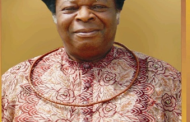Was it not Stalin who said something like History being so important to be left to historians? Both his critics as well as admirers would concede that he knew what he was speaking about.

Monument in commemoration of Portuguese explorers
While in Africa, historical figures or figures represented as historical actors in European historiography are scornfully looked at, the same figures are heroes back home. Why the difference exists in the interpretation of same set of figures has little or nothing to do with History itself but the politics of History, the same thing Stalin, (if he is the one who made the statement in question) is talking about. That is, History is not about facts but the power over the interpretation of the so-called facts.
This is what sensitive holiday maker, Sierra Leone-born Political Economist, Dr. Yusuf Bangura is (re) discovering in Lisbon, Portugal where he is taking another look at History in an unhurried manner
He has been particularly exploring Portugal’s maritime and imperial history, the country reported to be the first naval power to dominate the Atlantic and Indian oceans. Visiting Belem, where the maritime museum is located, he says it houses so much historical knowledge. That is History as understood and written by the Portuguese and, therefore, positive about colonialism and the key actors who superintended it in Africa. One of such is Vasco da Gama who was on service to his own nation.

Looming large in Portuguese imaginative geography is the exploits by Vasco da Gama as inscribed and preserved here. He is very much revered by the Portuguese for opening the trade route to India.

Serra Lioa (Sierra Leone) featuring prominently in Portuguese cartography in the 15th century
Bangura is looking at Portugal’s map of maritime adventure and colonisation. For instance,
while every Sierra Leonean who has been to school knows that Pedro de Sintra was the first European to visit Sierra Leone and gave it its name, most didn’t know that the Sierra Leone area was also called Cabo Ledo by the Portuguese. The Sierra Leone area was referred to as Cabo Ledo (Cape Ledo). Sierra Leone’s name associated with Sintra was Serra Lyoa, which the British later changed to Sierra Leone in the late 18th century.
History does matter. Or the grasp of critical perspectives on History mattes a lot! The question is, how much of critical perspectives on History does Africa muster? And are African universities as the ones in Nigeria, for instance, about to get it right?




























